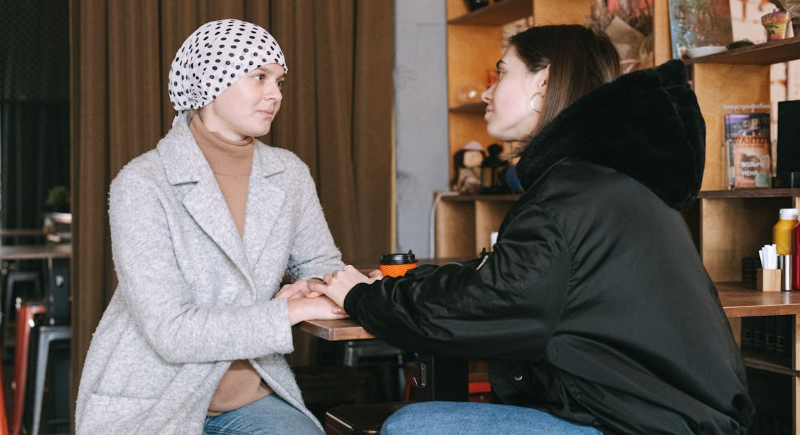Unspoken Betrayals That Can Feel Worse Than Cheating in a Relationship
Most people think of cheating as the ultimate relationship dealbreaker. Yet betrayal isn’t always about another person. It can come through tiny moments or silent choices that chip away at trust. Here are 15 betrayals that can feel just as devastating, if not worse, than an affair.
Telling Other People Things Meant for You Only

Credit: pexels
Trust usually comes down to keeping private conversations safe. When a partner shares personal things you said in confidence, even casually, it feels like your privacy got handed off without permission. This is a breach that’s hard to repair because it makes people second-guess what they say next time.
Letting Decisions Happen Without You

Credit: pexels
When one person makes a big financial or life decision without the other’s input, it signals something deeper than forgetfulness. Being excluded creates a split: you’re in a partnership, but you’re not being treated like a partner. Unity thrives when both people feel involved in shaping the future.
Flirting That Crosses the Line

Credit: pexels
Some people call it harmless. Others call it emotional cheating. Either way, flirting that makes your partner uncomfortable breaks unspoken agreements. Especially when it involves secrecy or someone your partner doesn’t know. Trust gets blurry when intentions aren’t clear.
Letting Others Trash Talk Your Partner

Credit: pexels
It’s weirdly common—friends make snide jokes or a family member criticizes, and the partner just shrugs. Staying quiet doesn’t keep the peace, but leaves your person stranded. Defending means showing, in the moment, that their dignity matters to you, even when they’re not in the room.
Only Confiding in Other People

Credit: pexels
Everyone needs friends, but when your partner always turns to others for emotional support—especially about the relationship—it leaves a gap. Feeling like the last to know what’s bothering someone close to you feels less like a relationship and more like being on the outside.
Lying About the Small Stuff

Credit: iStockphoto
Not every lie is dramatic. But when someone regularly lies about everyday things—where they were, what they ate, how much they spent—it plants a seed of doubt. If they can lie so easily about what seems harmless, what else are they hiding?
Using Silence as a Weapon

Credit: iStockphoto
Stonewalling occurs when one person refuses to talk, disconnects emotionally, or disappears during conflict. This kind of emotional shutdown causes the other person to experience stress. Over time, they stop trying to connect at all.
Dismissing Feelings as Overreactions

Credit: pexels
If someone says something hurt them and they’re met with mockery or minimization, it tells them their experience is invalid. Sometimes, gaslighting—making someone doubt their own feelings—is as simple as refusing to acknowledge that pain exists.
Downplaying Their Accomplishments

Credit: iStockphoto
Support also shows up in how you react to your partner’s wins. Shrugging off their success or acting unimpressed comes off as resentful. It tells them you don’t see their effort, or worse, that you don’t care.
Always Putting Others First

Credit: iStockphoto
A relationship can’t function well when someone constantly puts work, family, or friends ahead of their partner. When your partner feels like they’re last in line, it’s hard for them to feel secure. Consistently choosing others over them sends a message: “This relationship is less important.”
Talking About You Behind Your Back

Credit: pexels
Hearing that your partner spoke poorly about you to their family or friends creates a deep kind of betrayal. Even if it wasn’t meant to hurt, it damages your reputation in ways that are hard to undo—and builds a wall between you and the people they told.
Making Promises They Don’t Keep

Credit: pexels
It doesn’t have to be a vow or a pinky swear. Even casual promises matter—saying you’ll call, show up, or take care of something. When those get broken often, it starts to feel intentional. Promise-breaking creates uncertainty and makes people feel unsafe in the relationship.
Hiding Addictions or Compulsions

Credit: pexels
Keeping a hidden habit—whether it’s gambling, shopping, drinking, or something else—chips away at trust in layers. The secrecy often hurts more than the habit itself. It leaves the other person wondering what else they don’t know. Once it’s discovered, it can make the entire relationship feel like a performance.
Mocking Their Vulnerabilities

Credit: iStockphoto
Sharing insecurities with a partner takes courage. Throwing those vulnerabilities back during a fight or using them as jokes cuts deeply. It teaches people not to open up again. And it often turns once-close relationships into surface-level partnerships.
Treating Their Needs as Inconveniences

Credit: iStockphoto
A partner shouldn’t have to beg to be seen. When one person consistently acts irritated or dismissive toward the other’s emotional or practical needs, it signals that their comfort matters more. Relationship therapists often say it’s not the need that breaks people apart—it’s the feeling that they’re a burden just for having it.